Dental caries -- a disease caused by a variety of factors in the mouth, characterized by the demineralization of inorganic materials and the decomposition of organic matter, and the evolution of the tooth from color change to the formation of substantial lesions. It is characterized by high incidence and wide distribution. Is the main common oral diseases, is also one of the most common human diseases, if not treated in time, the lesions continue to develop, the formation of cavities, and finally to the complete destruction of the tooth crown disappeared. Untreated cavities do not heal on their own, and the end result is tooth loss.
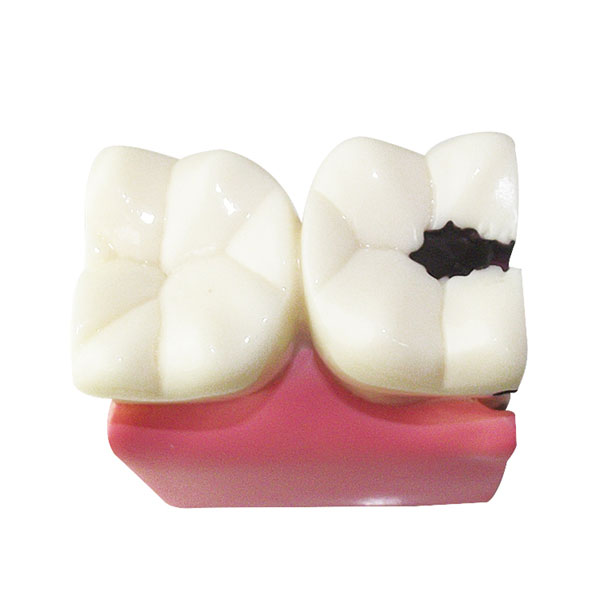
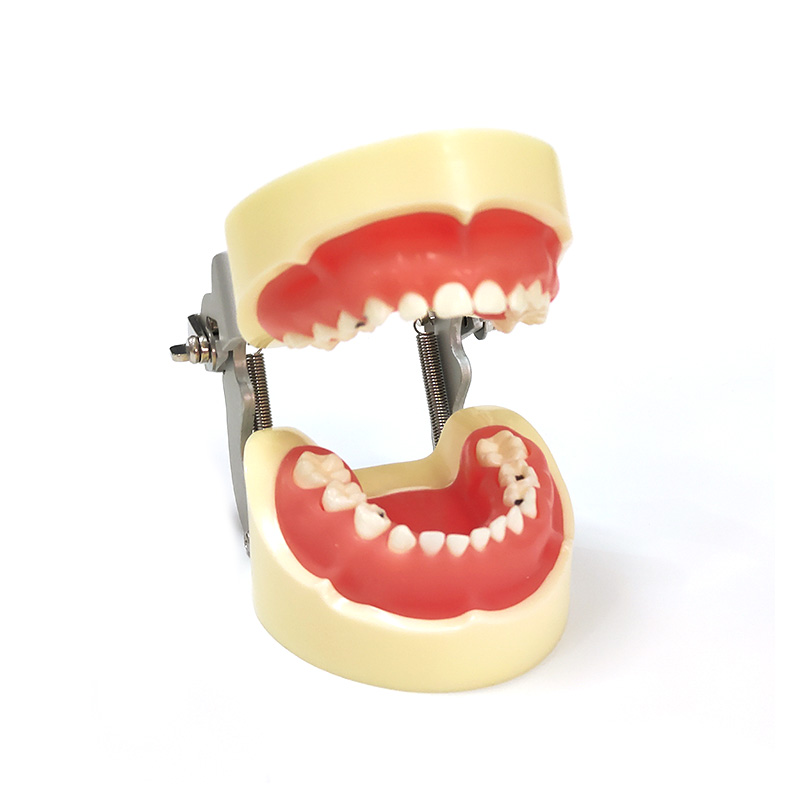
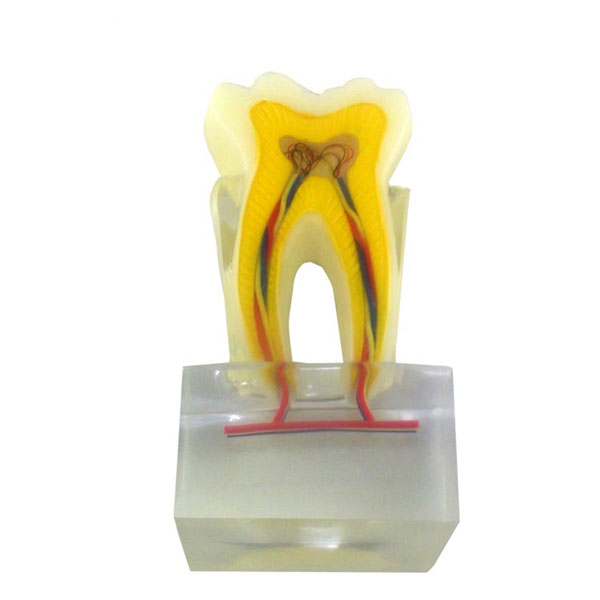
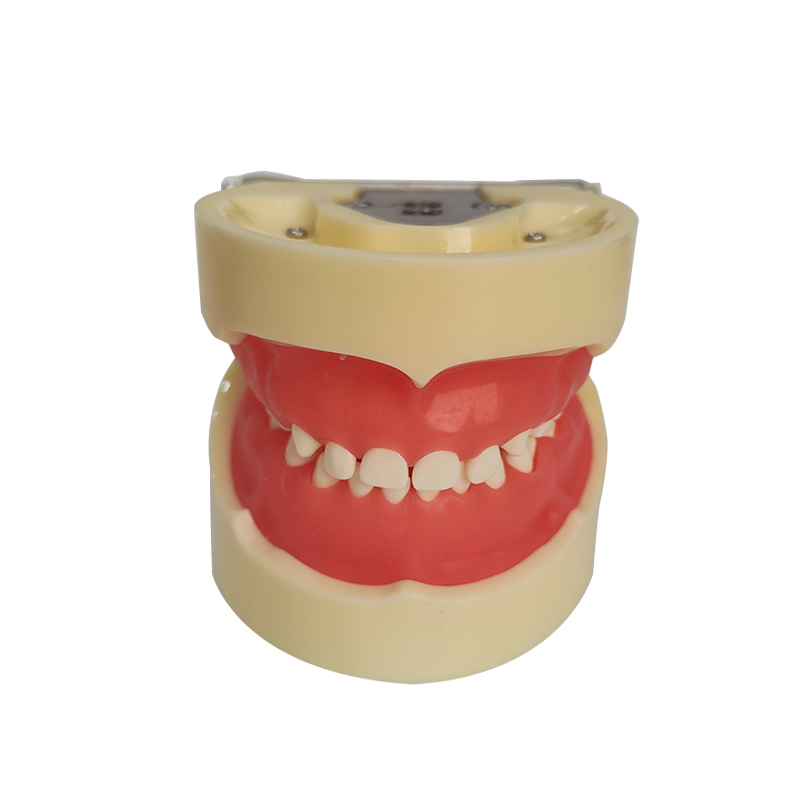
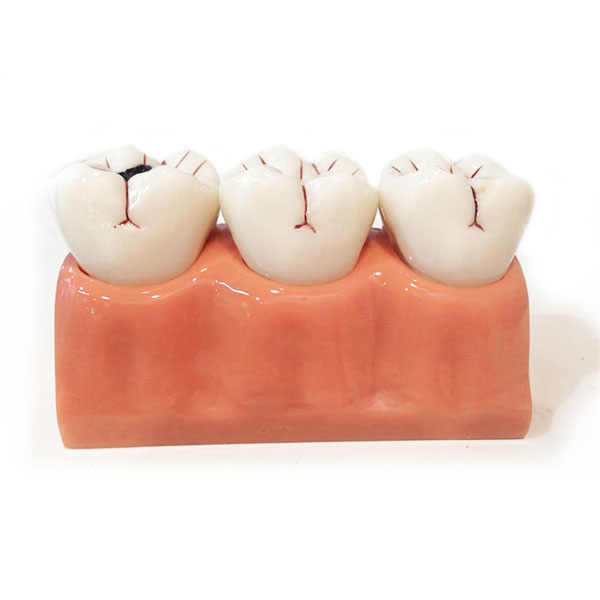
1. The shallow caries
Also called enamel caries, caries are confined to the enamel. In the early stage of the smooth surface for demineralization caused by chalky patches, later due to the coloring and yellow-brown, the pit and groove is immersed in the ink-like dispersion, generally no obvious caries, only when the rough feeling, late can appear limited to the shallow holes in the enamel, no self-conscious symptoms, no response probing.
2. The caries
The caries has reached the superficial layer of dentin. There are obvious caries holes in clinical examination, and there may be pain probe. Pain response to external stimuli (such as cold, heat, sweet, acid and food insertion, etc.) may occur.
3. Deep caries
Caries has reached the deep dentine, generally manifested as large and deep cavities, or the entrance is small and deep with more extensive damage, the response to external stimulus is more than the middle caries, but after the removal of the stimulus source, can still immediately relieve pain, no spontaneous pain.
4. The decay
The dark transmission area on the X-ray film may assist in the diagnosis of the difficult to diagnose (such as adjacent surface caries).
1. Drug treatment, commonly used drugs include silver aminopin and sodium fluoride, etc
2. Amalgam filling is the most widely used and effective method for teeth with substantial defects
3. Composite resin filling, suitable for filling anterior teeth and posterior cavities that do not bear chewing force
4. Photosensitive composite resin filling by acid etching, cement, calcium hydroxide preparation covering exposed dentin
5. Inlay: an inlay made of metal or other material that fits into a dental cavity and is inlaid into the cavity
1. Brush your teeth in the morning and evening, and develop a good habit of gargling after meals;
2. Eat less acidic foods and avoid snacking before bed.
3. Eat less foods high in sugar, such as sugar, chocolate, cookies, etc.
4. Do not eat too much hard food to avoid tooth wear;
5. Regular physical exercise, regular oral examination, generally over 12 years old people should be checked once a year;
6. The usual diet should be rich in calcium, inorganic salt and other nutritious food, as far as possible to eat hig
The dental caries model is specially designed to help dentists better study and cure patients' dental caries. The reason why dental caries grow is that certain bacteria in the mouth, in the presence of fermentable sugars, cause the formation of acids which in turn decalcify teeth. Dental caries can be found in two different areas of the teeth, called occlusal caries and interproximal caries. Occlusal caries develop on the topmost part of the teeth where the particles of food repeatedly have direct contact with the teeth.

